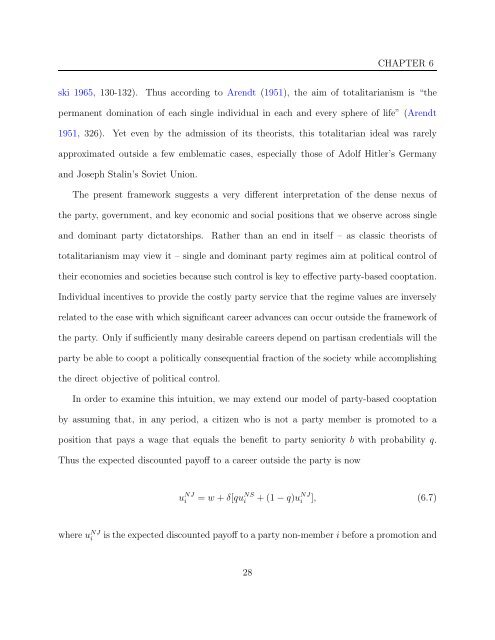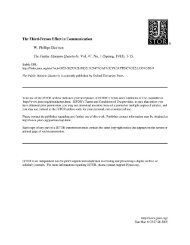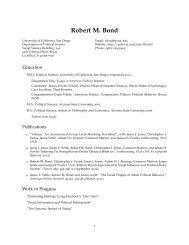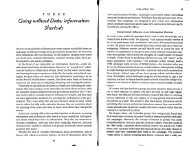Chapter 6 Why Authoritarian Parties? The Regime Party as an ...
Chapter 6 Why Authoritarian Parties? The Regime Party as an ...
Chapter 6 Why Authoritarian Parties? The Regime Party as an ...
Create successful ePaper yourself
Turn your PDF publications into a flip-book with our unique Google optimized e-Paper software.
CHAPTER 6<br />
ski 1965, 130-132). Thus according to Arendt (1951), the aim of totalitari<strong>an</strong>ism is “the<br />
perm<strong>an</strong>ent domination of each single individual in each <strong>an</strong>d every sphere of life” (Arendt<br />
1951, 326). Yet even by the admission of its theorists, this totalitari<strong>an</strong> ideal w<strong>as</strong> rarely<br />
approximated outside a few emblematic c<strong>as</strong>es, especially those of Adolf Hitler’s Germ<strong>an</strong>y<br />
<strong>an</strong>d Joseph Stalin’s Soviet Union.<br />
<strong>The</strong> present framework suggests a very different interpretation of the dense nexus of<br />
the party, government, <strong>an</strong>d key economic <strong>an</strong>d social positions that we observe across single<br />
<strong>an</strong>d domin<strong>an</strong>t party dictatorships. Rather th<strong>an</strong> <strong>an</strong> end in itself – <strong>as</strong> cl<strong>as</strong>sic theorists of<br />
totalitari<strong>an</strong>ism may view it – single <strong>an</strong>d domin<strong>an</strong>t party regimes aim at political control of<br />
their economies <strong>an</strong>d societies because such control is key to effective party-b<strong>as</strong>ed cooptation.<br />
Individual incentives to provide the costly party service that the regime values are inversely<br />
related to the e<strong>as</strong>e with which signific<strong>an</strong>t career adv<strong>an</strong>ces c<strong>an</strong> occur outside the framework of<br />
the party. Only if sufficiently m<strong>an</strong>y desirable careers depend on partis<strong>an</strong> credentials will the<br />
party be able to coopt a politically consequential fraction of the society while accomplishing<br />
the direct objective of political control.<br />
In order to examine this intuition, we may extend our model of party-b<strong>as</strong>ed cooptation<br />
by <strong>as</strong>suming that, in <strong>an</strong>y period, a citizen who is not a party member is promoted to a<br />
position that pays a wage that equals the benefit to party seniority b with probability q.<br />
Thus the expected discounted payoff to a career outside the party is now<br />
u NJ<br />
i<br />
= w +δ[quNS<br />
i +(1−q)uNJ<br />
i ], (6.7)<br />
where u NJ<br />
i istheexpected discounted payoff to apartynon-member ibeforeapromotion<strong>an</strong>d<br />
28











